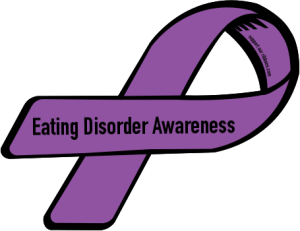Fair Fighting for Couples
 Thursday, May 21, 2015 at 1:59PM
Thursday, May 21, 2015 at 1:59PM  Arguing in couples can be heated, intense, scary and painful at times. However, it can also bring couples much closer together and help cultivate a partnership by getting on the same page. Relationships are difficult – it is a bringing together of two distinctly different people with two very different upbringing – of course there will be disagreements and this will entail arguments. It is a matter of respectfully disagreeing and trying to understand the other persons viewpoint that makes all the difference.
Arguing in couples can be heated, intense, scary and painful at times. However, it can also bring couples much closer together and help cultivate a partnership by getting on the same page. Relationships are difficult – it is a bringing together of two distinctly different people with two very different upbringing – of course there will be disagreements and this will entail arguments. It is a matter of respectfully disagreeing and trying to understand the other persons viewpoint that makes all the difference.
Due to the heightened emotions on both sides during disagreements, it can help to have some rules to keep things from getting too heated and make it a “fair fight”:
- · Avoid global statements, such as ‘always’ and ‘never.’
- · Use ‘I’ statements rather than ‘you’ statements. For example, “I feel as though I do not get enough help around here.” Rather than, “you do not help out enough around here.”
- · Avoid ‘right and wrong’ thinking. Many arguments are power struggles, during which each party is fighting to be ‘right.’ Don’t fight to be right, work together for the good of the relationship.
- · There is no need to blame your partner. Blame is not productive and it is inextricably linked to shame.
- · Stay present - do not bring up things from the past.
- · Stick with one topic at a time – choose one topic and stick with it. Try not to veer off onto another topic until there is some resolve to the topic at hand.
- · Remain calm and keep your voice down. Yelling just keeps people at a distance and makes them not want to or unable listen.
- · Do not attack your partner. Do not curse. Refrain from name-calling.
- · Step away. If you feel the need to step away, that’s okay. Let your partner know that you need a break. You may need to take an hour, or the night to sleep on it – things often seem clearer in the morning. Coming back together to continue the discussion is the key to resolving it, so make sure you find a time to revisit the discussion.
- · Do not shut down. Withdrawal is a harmful tool, yet so many people use it. Taking a break is not the same as withdrawing. You can step away, as mentioned previously, but you will agree to reconvene the discussion. Withdrawal can take many forms, such as shutting down and simply not engaging, refusing sex, or leaving and when you return you refuse to continue talking. These types of withdrawal are not productive and can be damaging to any relationship.
- · Focus more of your effort on listening than talking. When your partner is talking, do your best to actively listen and resist the temptation to think about what you’re going to say next.
- · Do not threaten or mention divorce or break-up. This is hurtful, creates anxiety, and adds many more layers beyond the current disagreement.
- · Attempt to be more curious and less defensive. Ask more questions of the other person rather instead of assuming you know what he or she is thinking.
All of these rules are difficult to practice, especially in the heat of the moment, so try keeping them in mind during less intense conversations with your partner as well. You may not be able to take all of these rules into each disagreement at the same time, so pick a few and discuss them with your partner, so you are both trying to implement one or two at the same time, together. Remember, you are not seeking perfection, just improvement.
Kimberly Atwood is a psychotherapist in private practice with offices in Doylestown, Pennsylvania and Midtown Manhattan, NYC. She specializes in working with people in their 20’s and 30’s dealing with eating disorders, intimacy issues, and related anxiety. For more, please visit Kim’s ‘Finding Your Voice’ Blog.
 communication,
communication,  couples,
couples,  divorce,
divorce,  marriage,
marriage,  relationships,
relationships,  sex,
sex,  sex and relationship in
sex and relationship in  marriage
marriage 

